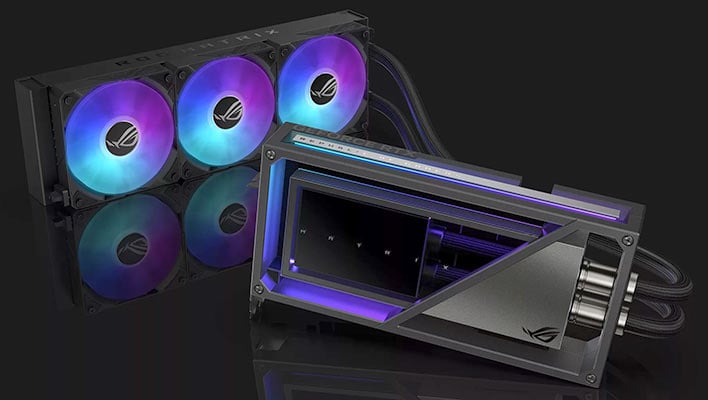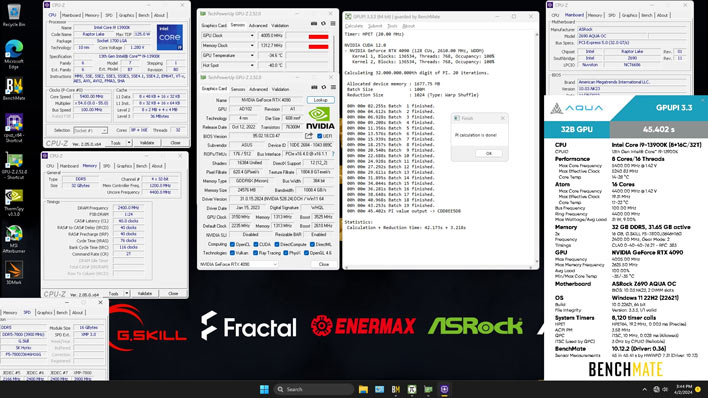ASUS ROG Matrix GeForce RTX 4090 Is The First GPU To Break The 4GHz Barrier

Extreme overclocking expert Allen 'Splave' Golibersuch inched past the GeForce RTX 4090 4GHz clock speed milestone a few hours ago. Splave recorded an official 4,005MHz using a liquid nitrogen cooled graphics card, and thanked his supporting cast of component makers - ASUS, ASRock, G.Skill, and Enermax - for their excellent hardware.
In June, we recorded the progress of overclockers jockeying to be the first to push an NVIDIA GeForce RTX 4090 past the 4GHz barrier. In mid-June, overclocker CENS got within touching distance of this milestone, with a record-breaking (at the time) 3,930MHz achieved. Towards the end of June, Splave made his intent known with a stable 3,945MHz GPU clock on Nvidia's flagship consumer graphics card.
A few days ago, we saw CENS come back with an RTX 4090 GPU clock speed achievement of 3,975MHz. Today, Splave struck back confidently and smashed through the 4GHz milestone, as we had been predicting would be soon achieved in our reporting last month.
- ASUS ROG Matrix GeForce RTX 4090 with LN2 cooling etc, clocked at up to 4,005MHz
- Intel Core i9 13900K 'Raptor Lake-S' with water cooling, running at 5.4GHz, running at 28°C under load
- ASRock Z690 Aqua OC motherboard
- G.Skill 32GB (2x 16GB) DDR5-4800 (Gear mode 2) CL40 RAM
We note that the above system is nearly identical to that used in Splave's previous record, with the only notable change being that the overclocking expert swapped out Corsair DDR5 for G.Skill DDR5 RAM.
In addition to the headlining RTX 4090 4GHz+ achievement, Splave racked up a new computational world record. Thanks to the superfast Ada Lovelace GPU at his disposal, the overclocker managed to calculate Pi to an accuracy of 32 billion digits in 45 seconds and 402 milliseconds using the GPUPi v3.3 app.


